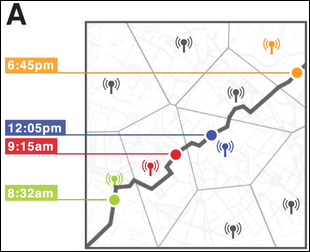 On Tuesday, the Supreme Judicial Court of Massachusetts issued its ruling in Commonwealth v. Augustine (available here). The Court ruled that police officers need to obtain a warrant before they obtain information about your location from a cell phone service provider. The Cyberlaw Clinic filed a friend-of-the-court brief in this case on behalf of the Electronic Frontier Foundation, arguing against warrantless collection of location records. The Court agreed that location data is sufficiently sensitive to require constitutional protection, building on its decision last year requiring warrants for GPS tracking.
On Tuesday, the Supreme Judicial Court of Massachusetts issued its ruling in Commonwealth v. Augustine (available here). The Court ruled that police officers need to obtain a warrant before they obtain information about your location from a cell phone service provider. The Cyberlaw Clinic filed a friend-of-the-court brief in this case on behalf of the Electronic Frontier Foundation, arguing against warrantless collection of location records. The Court agreed that location data is sufficiently sensitive to require constitutional protection, building on its decision last year requiring warrants for GPS tracking.
Significantly, the Court also rejected the Commonwealth’s argument that cell phone users surrender any privacy interest in their location records merely by permitting cell phone providers to create those records about them. The Court noted that a user making a phone call is not consciously conveying their location information to a provider and declined to extend the privacy exception known as the “third party doctrine” in a way that would open this location data to warrantless snooping by the police.
We at the Clinic are pleased that the SJC has invited the public to brief its digital civil liberties cases and to help them think through the application of long-established rights to new technologies. And we’re especially pleased that the SJC has defended the continued vitality of those rights in both of the privacy cases we’ve briefed before them.
